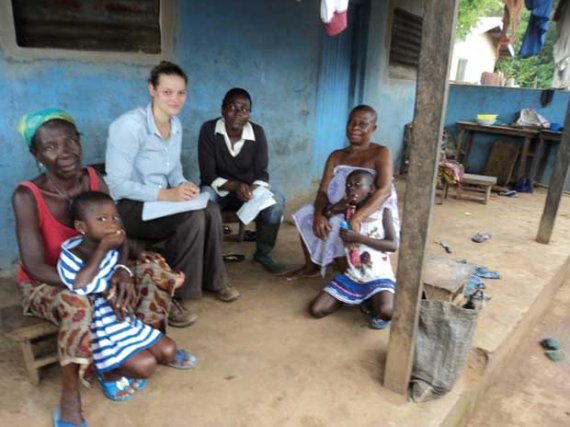In the fall of 2011 I left the Netherlands for my internship in Ghana. It was not my first experience of developing countries or even of Africa. I had spent a year in India doing voluntary work and I had also been to Ghana once before, for 4 weeks. It was not that I particularly wanted to go to Ghana. I study tropical agriculture and supply chain management and I was willing to travel to wherever I got the best project offer. It just happened that the Agro Eco-Louis Bolk Institute in Ghana had a nice project for me. Firstly I had to do a lot of reading about the research I was going to undertake, which was on the economic performance of organic and fair trade farmers in the cocoa industry in Aponapono. Then I interviewed 75 farmers about their production to see if they could give me at least a rough idea about their yield, expenses and agricultural practices. My research showed that the farmers knew little about their expenses and that their farming practices were pretty poor. It was difficult and frustrating sometimes because there is the ‘white people are rich’ stereotype to deal with. This meant that many of the farmers lied to me in the hope of getting some money. I only found out in the last week that some of my collected data was not valid because of this. On the other hand, people were incredibly open and keen to be friends. They liked chatting with me and they were extremely hospitable. For example, they didn’t want me to have to fetch water or to cook. I liked nearly everything about Ghana. The only things that took a bit of getting used to were the cockroaches and the dead mice that you often find in the toilet. I will definitely return to Ghana, but I don’t think I could spend the rest of my life there. The mentality and culture are too different for that.’
Fair Trade in Ghana
Who? Maren Peters (from Germany), second year Fair Trade Management student at VHL.What? Research on the economic performance of organic and fair trade farmers in the cocoa industry in AponaponoWhere? At the Agro Eco-Louis Bolk Institute in Ghana

